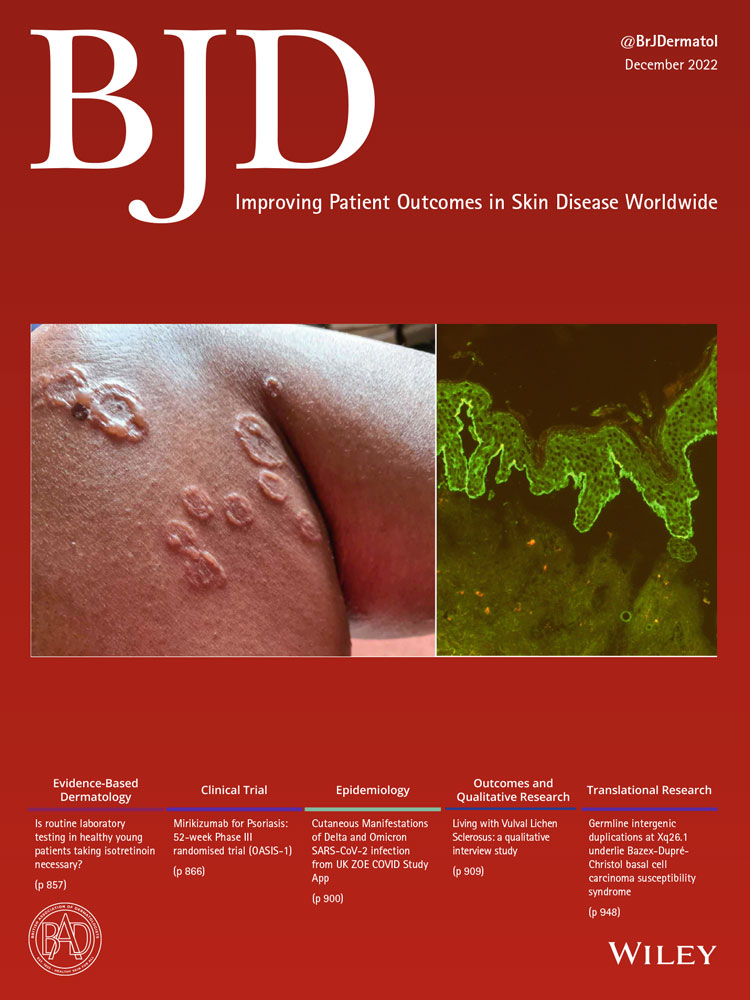Active psoriasis and profound CD4+ lymphocytopenia
Summary
We report the case of a patient with a long-standing history of widespread chronic plaque psoriasis, who was recently found to have a profound CD4+ lymphocytopenia. He is human immunodeficiency virus (HIV) negative. His psoriasis remains active and widespread, and he has had 60 cutaneous malignancies, including many squamous cell carcinomas, excised over the last 10 years. In the past he has had numerous cutaneous viral warts. Despite a low peripheral blood CD4+ T-cell count, similar numbers of activated T cells, identified by double labelling for CD4 and HLA-DR antigens, were found in the epidermis of our patient as other individuals with psoriasis. Thus, there appear to be sufficient activated CD4+ T cells in our patient's psoriatic plaques to maintain the psoriatic process.




